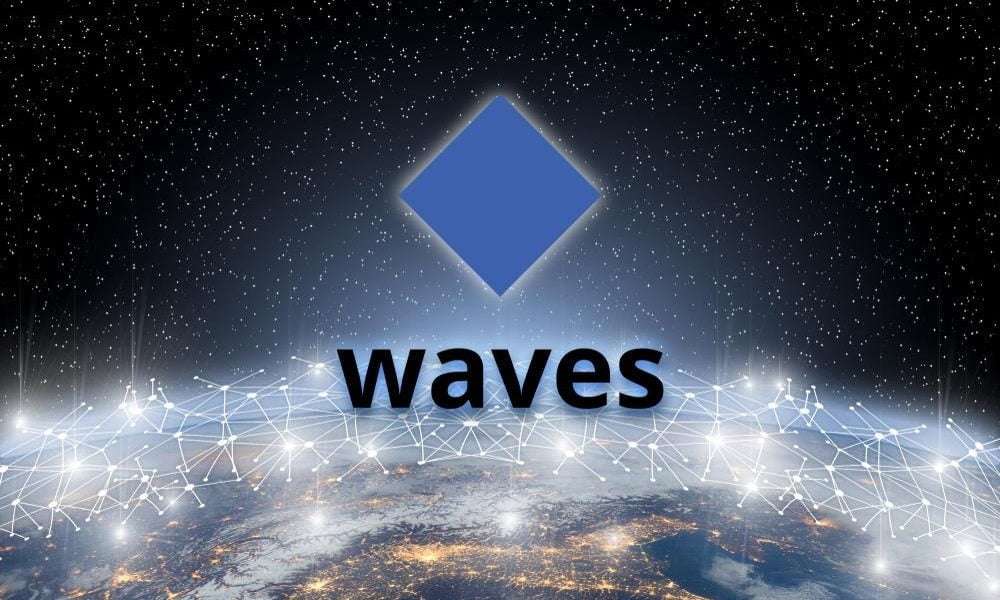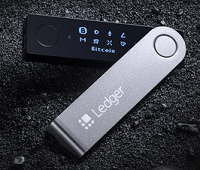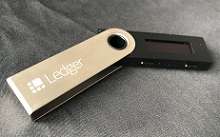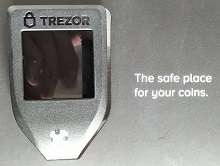If you are looking for a wallet for the cryptocurrency Waves, then you have come to the right place. We introduce you to the safest and best Waves wallets in detail. Waves hardware wallets offer the strongest protection, but cost some money. That’s why we’re also introducing free Waves desktop wallets, which offer good protection and a simple user interface.
First, however, it is important that you have a basic understanding of cryptocurrencies and wallets. Therefore we would like to give you a short theoretical introduction to the different types of wallets. If you already know your way around, you can simply skip this part.
A crypto wallet is a virtual wallet which, in contrast to wallets for paper money, does not store the money itself, but the access keys for it. The access keys are the so-called “private keys”. Depending on whether they are stored online or offline, there are two different types of wallets:
- Cold wallets and
- hot wallets
These two types of wallets differ significantly in one characteristic: “connection to the World Wide Web”. Cold wallets keep the private keys offline so that they never get connected to the Internet. Therefore it is almost impossible for hackers to steal the private keys from a hardware wallet and get access to your waves.
In contrast, the Hot wallets store the private keys on a device that goes online. This means that the private keys are at least temporarily in contact with the Internet. So hackers can try to steal your private key at this point.
This clear difference is also the reason why large crypto investment companies keep their customers’ funds in cold wallets, as there is no possibility for hackers to steal the capital. In our opinion you should also consider to invest your money for a Waves hardware wallet, because only then your Waves are secured in the best possible way.You also have the possibility to create a free Waves paper wallet, where you print your private key, password and wallet address on a piece of paper. This is a good option if you don’t want to access your waves for a long time.
Hot wallets can also be divided into three additional subcategories. These differed in the medium on which the private keys are stored.
- Waves desktop Wallets
- Waves Mobile Wallets
- Waves Online Wallets
While the private key is the access key representing the ownership of the cryptocurrency, the public key is used to generate the wallet address (is a hash version of the public key). In contrast to the public wallet address, the private key may never be passed on to third parties. If you have the private key, you can access the wallet address and send and manage the associated waves.
The best Waves hardware wallets
Hardware wallets are the best and safest way to store your Waves. Hardware wallets offer the highest security standard and the big advantage that several cryptocurrencies are supported in addition to Waves. Furthermore, the manufacturers of the hardware wallets issue regular updates so that you are always up to date with the latest security standards.
The private keys of hardware wallets are stored in a separate partition. Even when a transaction is released, the private key never leaves the wallet or is in contact with the Internet. By that, the architecture of the hardware wallet provides a powerful protection for your keys. Hackers have practically no point of attack to gain access to your private keys.
However, hardware wallets do not only provide online protection. Even if your Waves hardware wallet is stolen, you can set up a PIN and 2-factor authentication beforehand. The thieves have to overcome these two barriers in order to get access to your waves.
Overall, Waves hardware wallets offer the best possible protection currently available on the market. Therefore, in our opinion, every penny invested in a hardware wallet is worth it and protects your capital from robbers, malware and hackers.
We have listed all advantages and disadvantages of Waves hardware wallets for you:
✅ Your private keys will be stored offline
✅ More than 1,250 different cryptocurrencies are supported (Ledger)
✅ Each transaction must be confirmed manually at the touch of a button.
✅ You receive the latest security updates on a regular basis.
✅ If you have any questions, the very good customer support can be contacted
❌ No deposit insurance, as with eToro
1.Ledger Nano X hardware wallet
We have tested a total of 8 different hardware wallets and found a test winner: The Ledger Nano X. It is the successor of the Ledger Nano S and offers numerous new functions. The biggest innovation is the integrated Bluetooth function, whereby the Ledger Nano X can be used with your smartphone and functions as a mobile wallet, while offering the security of a hardware wallet.
Furthermore the security of the wallet was increased and a new security chip was installed. The internal memory has also been increased so that up to 100 apps can now be stored and used simultaneously. Also cool is that the display is larger and wallet addresses can be checked on the display without scrolling.
Bottom line: In our opinion, there is no better Waves hardware wallet at the moment that offers this level of security and functionality for the same price. We can therefore warmly recommend the Ledger Nano X to you.
2.Ledger Nano S
Ledger’s first hardware wallet, the Nano S, has sold more than 1.3 million copies worldwide. This clearly shows the strong security and quality of the Waves hardware wallet. We have been using the Ledger Nano S for several years now and are completely satisfied with it. To date, there are no documented attacks by hackers in which cryptocurrencies could be stolen.
Another advantage of the Nano S is the very low in price – currently 59€. If you don’t need the new features of the Nano X, then the Ledger Nano S is the perfect Waves hardware wallet for you.
3.Trezor Model T
Like Ledger, Trezor presented the new Model T in May 2019, which is the successor of the Trezor One. Compared to its predecessor, it offers significantly more functions and better security. In addition, the Trezor Model T supports many more cryptocurrencies via the Trezor Bridge software. The new functions and features include:
- 4 inch touch screen: The Trezor Model T comes with a color touch screen where transactions must be confirmed and the PIN must be entered.
- Firmware upgrade: The Trezor Core software has been completely renewed and made more secure.
- Upgrade of the processor: A much faster processor was installed, so that the operation runs even smoother.
- Micro SD card slot: Trezor has built in a micro SD card slot that can be used for data encryption, for example.
- USB-C port: The old USB port has been replaced by the new USB-C industry standard.
Bottom line: The Trezor Model T is one of the best Waves hardware wallets on the market. It provides comprehensive protection so that your waves are stored offline and no one has access to your private keys. Only the price is slightly higher in a competitive comparison. However, the Trezor Model T offers excellent quality.
The best Waves desktop and mobile Wallets
Both desktop and mobile wallets belong to the hot wallet category, as your smartphone and PC are temporarily connected to the Internet. This brings the private keys into contact with the World Wide Web. However, both desktop and mobile wallets are more secure than web wallets. The private keys are not stored on a central server or in the browser, but on the device you are using.
The big advantage of mobile Waves wallets as well as desktop wallets is that they can be used free of charge. So there are no acquisition costs for the purchase, as e.g. with the hardware wallet. The following overview shows you the advantages and disadvantages of Waves desktop and mobile Wallets:
✅ You can access your Waves from anywhere with an Internet connection.
✅ Significantly better security than with a web wallet
✅ Securing the wallet with a password and a 2-factor authentication
✅ Multi-coin wallets support over 100 cryptocurrencies
❌ Good security, but worse than hardware wallets
❌ It is your own responsibility to install updates regularly.
❌ There is no deposit insurance as some brokers offer (e.g. eToro).
In the following we present you the best Waves wallet for a serious desktop as well as mobile Waves Wallet:
- Waves official desktop and Web Wallet
- trust wallet
- Atomic Wallet
- Exodus Wallet
1.Waves official desktop and web wallet

The Waves web wallet is also available as a desktop version and offers a direct connection to the decentralized exchange Waves DEX. This decentralized exchange offers trading for BTC, ETH, LTC, XRP, as well as several other crypto- and fiat currencies. The charts are provided via the Tradingview API.
The trading fees on the DEX are very low and, compared to centralized exchanges such as eToro or Binance, are particularly low. The wallet does not have to be set up, but a simple registration on the official website of the exchange is sufficient. Waves recommends using the desktop wallet as this version is more secure than the Web wallet.
The private keys are stored on your PC or computer when using the desktop wallet. That way nobody but you has access to the private keys. Both the desktop and the web version of the wallet are simple and clearly structured. However, the operation of the exchange can be somewhat complicated for beginners and requires some training. The wallet is also available in several languages (DE, EN, FR, ES).
We recommend that you use the Waves desktop wallet if you do not want to purchase a hardware wallet. This gives you the best possible protection with a free Waves wallet. You can register or download an account and the wallet on this page.
2.Trust Wallet (Waves mobile wallet)

The Waves Trust wallet is a mobile wallet that is available for both iOS and Android. The wallet is provided by Six Days LLC (US Office) and is available in 10 languages (Spanish, French, German, Italian, Arabic, Japanese, Russian, Traditional Chinese, Simplified Chinese and Vietnamese).
Besides Waves, the wallet supports more than 42 different cryptocurrencies and more than 2,000 ERC20 tokens. The name of the wallet “Trust” is intended to reflect the fact that great importance was attached to security and anonymity in the development of the wallet. The wallet has been tested by the security company Stateful. The complete documentation can be found on the company’s website.
The code of the wallet is open source and can be viewed and checked on GitHub. The private keys are stored locally on your phone, so only you have access to them. The wallet can be classified as secure and trustworthy overall. In addition, the wallet offers a whole range of other features:
- Decentralized exchange: Trust wallet works together with the Kyber Network. Kyber’s decentralized exchange is integrated into the wallet, so you can trade cryptocurrencies from within the wallet.
- TouchID and FaceID: The wallet can be protected with a simple password. It is also possible to activate TouchID and FaceID to additionally protect the wallet.
- “Watch function”: The current account balance can be viewed without the private keys being connected to the Internet.
- Real-time Portfolio Tracker: The entire portfolio can be viewed in real time.
- Push notifications: You can set up a notification that informs you immediately when a transaction has been made.
You can download the wallet on this page for Android or for iOS.
3.Atomic Wallet

The Atomic wallet is a multi-coin-wallet that supports Waves and more than 300 different cryptocurrencies. One reason for the popularity of the wallet is the high security and that the wallet is published by the founder of Changelly. The programmers have attached great importance to three pillars of the crypto market:
- Security,
- Anonymity and
- Decentralization.
Both the private key and the transaction data are stored encrypted on your computer or smartphone. No one, not even a third party, has access to your private keys. These are also not stored on a company server. In addition, the Atomic wallet supports, as the name suggests, Atomic Swaps. This allows cryptocurrencies to be exchanged peer-to-peer without third parties, such as an exchange, being involved. However, this service is not available for all cryptocurrencies. The Changelly or ShapeShift Exchanges are available for these cryptocurrencies. Otherwise there is a fee between 2 and 5% for use.
You can download the wallet from the official website. It is available for Windows, Mac, Ubuntu, Debian and Fedora. There is also a mobile version, both for iOS and Android.
4.Exodus Wallet

The Exodus Waves wallet is a very popular wallet that supports more than 100 different cryptocurrencies. Exodus is one of the oldest wave wallets on the market and was released in July 2016. Since then it has been continuously improved, further developed and new coins added to the portfolio. In addition to the normal wallet services, Exodus offers the following additional functions:
- Portfolio tracker that supports over 30 different Fiat currencies.
- Integrated exchange service from Shapeshift, which allows many cryptocurrencies to be exchanged directly.
The Exodus wallet offers good basic security. Your private keys are only stored locally on your PC. This means that only you have access to your private keys and no third party. The user interface is very simple and intuitive, so that the wallet is also suitable for beginners. Nevertheless, there are also two points of criticism which we do not want to withhold from you:
- Backup function via e-mail: You have the possibility to create a backup of the wallet. All data will be sent to you by mail. This provides an attack point for hackers, as e-mails can be easily intercepted and the content misused.
- No 2-factor authentication (2FA): Hackers “only” have to intercept your password with a keylogger or malware and then have immediate access to all your cryptocurrencies.
The Exodus Waves wallet offers a basic security with the described disadvantages. If this is not a problem for you, you can download the wallet from the official website (click here!). The wallet is available as desktop version for Windows, Mac and Linux. There is also an app for iOS and Android users for free download.
Because your smartphone and PC are (probably) permanently connected to the Internet, you need to install an up-to-date anti-virus program and make sure that your device is free of viruses or malware. Hackers can try to steal your private keys via a Trojan or track your password via keyloggers. That’s why using security software on your smartphone or PC is necessary and very important.
If you are looking for a desktop wallet with an integrated exchange, we recommend using the official wallet of Waves. If you want to use a multi-join wallet to store multiple cryptocurrencies, take a closer look at the Atomic wallet or the Trust wallet.
Waves Online Wallets
Online wallets offer an easy and reliable way to store your Waves. The best known online wallets are exchange wallets. In doing so, you completely hand over the responsibility for managing your private keys to the exchange and have to trust it to take care of it as best it can.
Exchange wallets offer a good protection and often the possibility to set up an additional security level in the form of a 2-factor authentication. However, exchanges have often been the target of hacker attacks in the past. In the process, millions of cryptocurrencies were stolen and the victims were normally not compensated.
The advantage of exchange wallets, however, is clearly their ability to actively trade in cryptocurrencies, as well as a very simple setup and installation. Normally, registration of an account with the relevant exchange is sufficient for this. In some cases, however, personal information may need to be disclosed (under the KYC and World Anti-Money Laundering Directives).
In the next table we have compiled the advantages and disadvantages of Waves online wallet:
✅ Exchange wallets offer the advantage that you can trade directly out of the wallet.
✅ No installation or cumbersome setup, simple registration on a website
✅ You can define upper payout limits.
✅ Good customer support and a simple and intuitive user interface
✅ Many different cryptocurrencies are supported, besides Waves
❌ You do not have access to your private keys
❌ Greater likelihood of hacking or phishing attacks
❌ There are quite a few that turned out to be SCAM afterwards
- Waves online web wallet
- Binance
- Bitpanda
- Waves wallet light client
1.Waves Online Web Wallet

The already introduced Waves desktop wallet is also available as web wallet. The client is also connected to the decentralized exchange Waves DEX. Accordingly, you can also trade cryptocurrencies such as BTC, ETH, LTC, XRP, as well as some other crypto and fiat currencies.
The use of the exchange is free of charge. There are only trading fees if you trade cryptocurrencies on the Exchange. Registration is completely free and fast. No personal data will be requested or stored. The Web wallet can be used anonymously. Be aware that you have no access to your private keys and delegate the responsibility to the exchange. If the market gets hacked, you’re not entitled to any damages.
If you want to test yourself on the exchange, you can register an account on this page.
2.Binance wallet

If you want to keep your Waves online, there are a number of exchanges to consider. Binance is one of the most popular and secure cryptocurrency exchanges worldwide, which also offers the safekeeping of Waves. Furthermore, you can trade and store over 150 additional cryptocurrencies on the exchange.
Be aware, however, that you have to give up control over your private keys to the exchange and trust the exchange as well as your employees. Exchanges are a popular target of hackers, so Binance was also targeted in May 2019 such an attack in which a total of 7,000 BTC were stolen. Binance is nevertheless considered safe. However, the example is intended to demonstrate the vulnerability of exchange wallets.
In this incident, Binance compensated the users of the platform completely out of their own financial reserves: however, in an emergency you cannot count on this. That’s why you should think twice before investing your money in a hardware wallet.
If you would like to create an account on Binance, you can do so via this link*.
3.Bitpanda Wallet

Bitpanda is an exchange from Austria, which is subject to the regulation of the Austrian financial supervision. Bitpanda can thus be classified as particularly safe and reliable. Bitpanda offers trading in more than 20 different cryptocurrencies, including Waves.
In order to be able to use the exchange, however, the input of personal data is necessary. This is required under the KYC Directive within the EU. The use of the exchange as well as the registration is completely free of charge. Be aware, however, that you do not have access to your private keys, but delegate responsibility to the exchange.
The exchange is available in several languages (DE, FR, EN). We have had very good experience with the market. You can read our complete review here (click!).
You can create an account on the official site by clicking* (click!) on this link.
4.Waves Lite App (Chrome browser extension)
The Waves Lite client connects to public wave nodes to retrieve current information from the blockchain. There are all the options that a classic wallet also offers. Addresses can be created, transactions managed and sent. Your private keys are stored in the Chrome Browser and never leave your PC or computer. However, hackers potentially have an “easier” way to intercept your private keys and steal your waves with a phishing program or malware.
You can download the extension here.
Important information about the Waves wallet test
We have compiled this information to the best of our knowledge, using our own tests and hours of research. However, you should get more information and try some wallets to find the wallet that suits you best.
Subscribe to our daily newsletter!
No spam, no lies, only insights. You can unsubscribe at any time.
If you have any questions, suggestions or criticism about our Waves wallet review, please feel free to write us a comment. We’ll be glad to help you. In addition, we would of course be very happy if you would rate our post. Just click on the stars at the end of the post.
[ratings]







